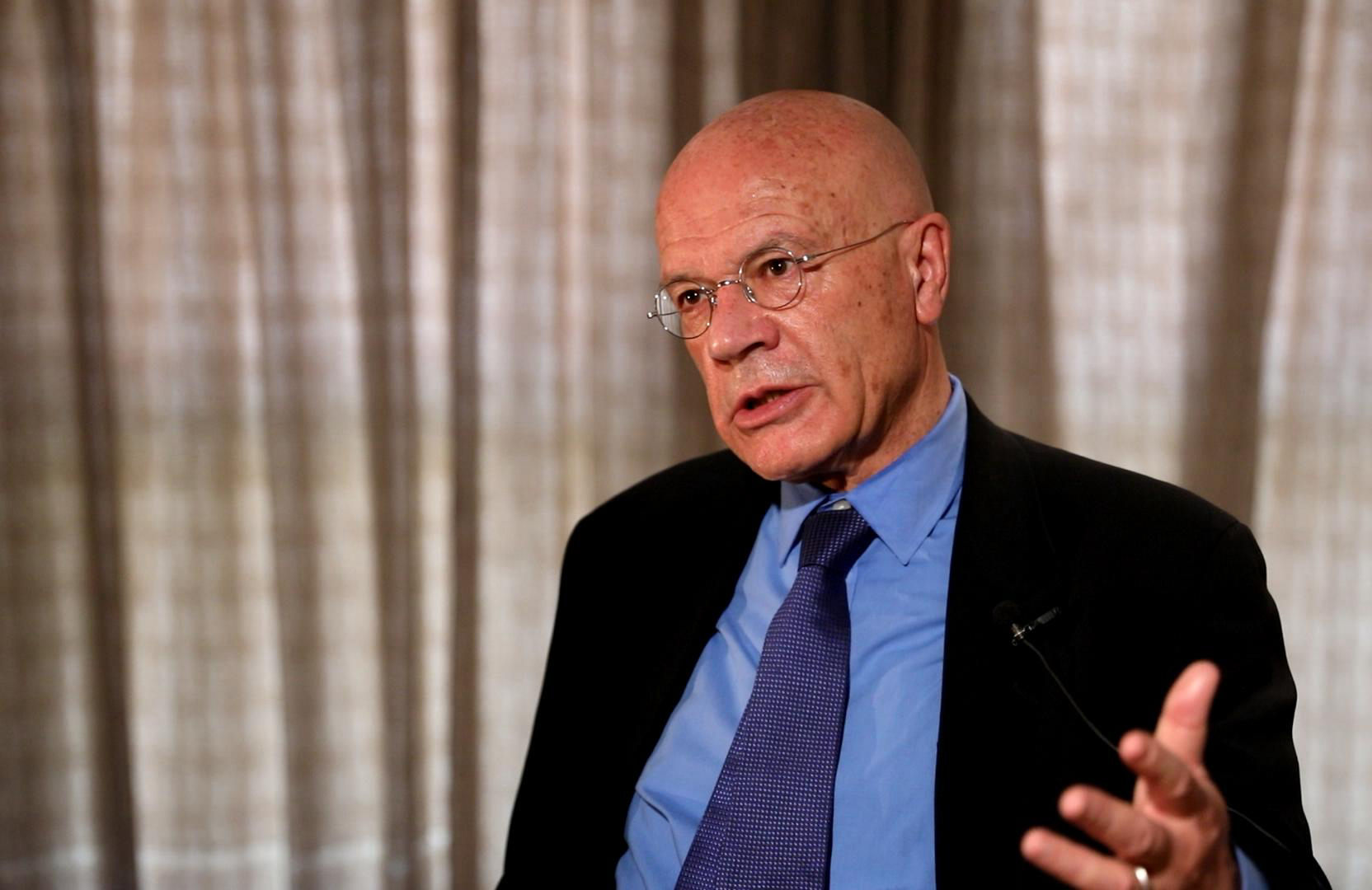

In When China Rules the World, an insightful book published in 2009, author Martin Jacques, a senior fellow at Cambridge University, predicted that China would remain highly distinctive from the western world, showcasing more influence on the global economy. A decade later, the scholar has proposed a new question: what kind of great power is China going to be?
"The big change since I wrote the book is that in a decade, the world no longer thinks of China in primarily economic terms, but sees it taking the shape of a great power politically, intellectually, culturally and so on. China has arrived in a big way," Jacques told People's Daily Online.

Martin Jacques, senior fellow at Cambridge University (He Zhuoyan/People's Daily Online)
According to Jacques, on the journey to becoming a great power, China's cultural influence will be formidable. Its governance, contrary to western prejudice, is a remarkably effective form of governance, which will provide experience for the future development of other nations.
"China's governance is the most developed form of governance in the world. By example, but not by instruction, or by persuasion, or by pressure, other countries, including western countries, will want to learn from Chinese statecraft and Chinese governance, even though they will still keep very different governing systems to those which you have in China," added Jacques.
Dismissing fear and negative comments on the rising global power of China, Jacques noted that China's rise would not harm other nations, but would instead bring more opportunities to the world.
"China has never been an evangelizing and expanding power. It didn't, in the vast majority of cases, fight with other nations. Sun Tzu regarded going to war as a kind of defeat, because the key objective is to avoid fights. This is so different from the American philosophy or indeed, the British philosophy when it was a great power," said Jacques.
"China is going to be a very different global power, in its style, approach, norms, priorities, values, to the western paradigm, and the world should understand China from its own perspective," he added.
The British scholar has also praised China's Belt and Road Initiative, calling it an idea on the grandest of historical stages, which could only be carried out by China.
"The present international order is fragmenting, losing its authority and legitimacy. But there is nothing to replace it. BRI has the potential to offer another kind of world, another set of values, another set of imperatives, another way of organizing, another set of institutions, another set of relationships," said Jacques.
"It offers an alternative to the existing international order. The present international order was designed by and still essentially privileges the rich world which represents only 15% of the world’s population, BRI on the other hand is addressing at least two thirds of the world’s population. This is extraordinarily important for this moment in history," he added.
Looking ahead to the upcoming 70th anniversary of the founding of the People’s Republic of China, Jacques sent his congratulations to the Chinese government, calling the anniversary a great achievement.
"Generally, great countries that declined never recovered. China has seen declines several times in history; it even once lost its dignity and respect, suffered centuries of humiliation. But since 1949, China's reinvention and reconstitution have undertaken an enormous transformation, making extraordinary achievements, breaking new records in history. It is a young nation with deep history, and is so forward-looking," said Jacques.

 Award-winning photos show poverty reduction achievements in NE China's Jilin province
Award-winning photos show poverty reduction achievements in NE China's Jilin province People dance to greet advent of New Year in Ameiqituo Town, Guizhou
People dance to greet advent of New Year in Ameiqituo Town, Guizhou Fire brigade in Shanghai holds group wedding
Fire brigade in Shanghai holds group wedding Tourists enjoy ice sculptures in Datan Town, north China
Tourists enjoy ice sculptures in Datan Town, north China Sunset scenery of Dayan Pagoda in Xi'an
Sunset scenery of Dayan Pagoda in Xi'an Tourists have fun at scenic spot in Nanlong Town, NW China
Tourists have fun at scenic spot in Nanlong Town, NW China Harbin attracts tourists by making best use of ice in winter
Harbin attracts tourists by making best use of ice in winter In pics: FIS Alpine Ski Women's World Cup Slalom
In pics: FIS Alpine Ski Women's World Cup Slalom Black-necked cranes rest at reservoir in Lhunzhub County, Lhasa
Black-necked cranes rest at reservoir in Lhunzhub County, Lhasa China's FAST telescope will be available to foreign scientists in April
China's FAST telescope will be available to foreign scientists in April